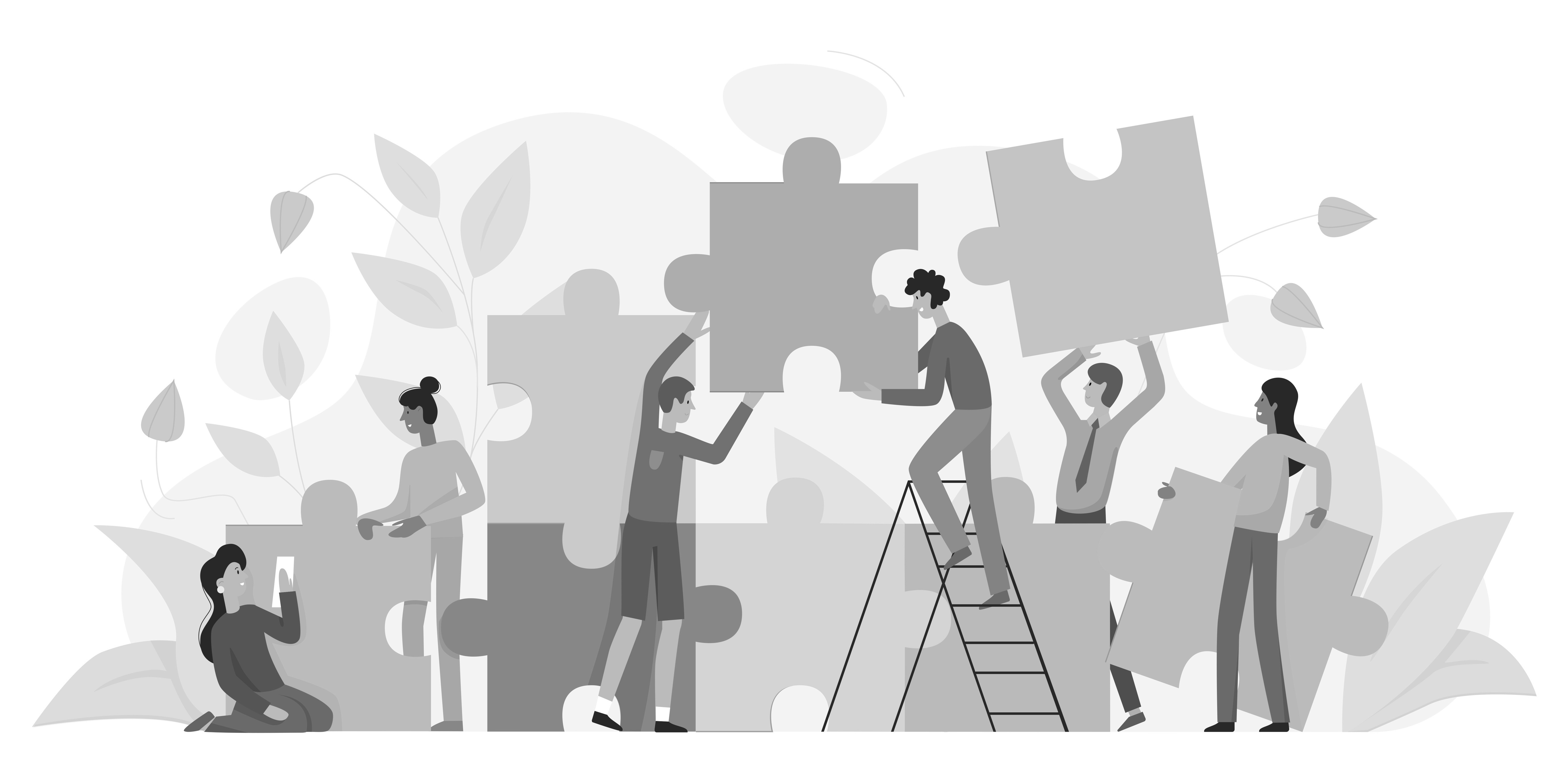Emotional intelligence is defined as the ability to recognize, understand and manage our own emotions and to recognize, understand and influence the emotions of others. The term was coined by two researchers, Peter Salavoy and John Mayer, and then later popularized by American psychologist, Daniel Goleman, in his 1996 book, Emotional Intelligence. Essentially, emotional intelligence encompasses the practice of skillfully expressing one’s own emotions and having the ability to manage interpersonal relationships with empathy.
Develop Emotional Intelligence in 4 Easy Steps
by The Leadership Development Group posted in Leadership Development, Leadership, Leadership Resources, Executive Coaching
4 Tips to Strengthening Communication on Your Team
by The Leadership Development Group posted in Leadership Development, Leadership, Leadership Resources, Team Development
Leaders who communicate with empathy, transparency, and authenticity create positive team dynamics, higher retention, and better team outcomes. In fact, teams that rate their communication as strong, have 4.5x higher retention rates. On top of that, 86% of employees in a recent survey blame company failure on poor communication.
Leading, Collaborating, and Partnering Across the Health Ecosystem to Drive Value and Transform Health
by The Leadership Development Group posted in Leadership Development, Partnerships, Healthcare Ecosystem, Leadership, Leadership Resources, Pharma, Physician Leadership
The pandemic has shaken up the very nature of work, making a lasting impact on organizations and business leaders across all industries. The biggest impact, however, has been felt by organizations that comprise the health ecosystem as they stepped up and rallied to respond to the challenges their communities faced during the pandemic. Many key players in the health ecosystem have illustrated what is possible when leaders from different organizations and diverse industry sectors collaborate to meet critical challenges and align around a shared purpose.
Redefining the Workforce to Embrace the “New Normal”
by The Leadership Development Group posted in Leadership Development, Healthcare Ecosystem, Leadership, Leadership Resources, Diversity and Inclusion, Executive Coaching, Physician Leadership
Significant societal issues including the pandemic, social injustices, and economic turmoil have forced every organization, its leaders, and its workforce to dive headfirst into a “new normal.” The health ecosystem, in particular, has been hit hard, having to reinvent the very nature of work to support their employees, patients, and communities with compassion — amid limited resources — through one of the most critical periods in our lifetimes. What are organizations doing to build their workforces’ capabilities to embrace the “new normal?”
The Top 11 Leadership Development Trends for 2022
by The Leadership Development Group posted in Leadership Development, Partnerships, Healthcare Ecosystem, Leadership, Virtual Teaming, Leadership Resources, Diversity and Inclusion, Executive Coaching, Team Development, Collaboration
Due to imminent societal and economic challenges, leaders from organizations spanning all industries are shifting their priorities in 2022. According to Gartner, approximately 60% of HR leaders’ number one priority in 2022 is to build critical skills and competencies. Consequently, there are key leadership development trends to stay on top of to ensure success within your organization in this new year and beyond. From the Great Resignation to increasing team effectiveness in hybrid workforces, we’re highlighting the top 11 leadership development trends for 2022.
On-Demand Leadership Development Solutions: What Are They and How Do They Work?
by The Leadership Development Group posted in Leadership Development, Healthcare Ecosystem, Leadership, Leadership Resources
The challenges faced by leaders today have dramatically intensified due to the myriad issues created during, and as a result of, the pandemic. Organizations are facing massive changes due to hybrid workforces, excess levels of stress, and the resulting Great Resignation as masses of leaders continue to voluntarily leave their jobs in search of better and more balanced opportunities. Reports state that about 60% of leaders feel worn out at the end of each day, which is likely indicative of burnout — a contributing factor to the Great Resignation.
4 Steps to Overcoming Imposter Syndrome
by The Leadership Development Group posted in Leadership Development, Healthcare Ecosystem, Leadership, Leadership Resources, Physician Leadership
Imposter syndrome, defined by the Harvard Business Review as “doubting your abilities and feeling like a fraud,” impacts high-achieving people as they often find difficulty in accepting their own accomplishments. Essentially, people with imposter syndrome feel as though they’re not qualified enough, not talented enough, or simply not good enough to perform their job well.
But, could this be a case of mind over matter? Or is there more to overcoming imposter syndrome?
Leadership Effectiveness: The Top 4 Habits That Could Be Limiting Your Success
by The Leadership Development Group posted in Leadership Development, Healthcare Ecosystem, Leadership, Leadership Resources, Mindfulness, Physician Leadership
Becoming a successful leader today requires the ability to prioritize learning and continuous development of skills, knowledge, and behavioral competence. To excel in healthcare leadership it’s crucial to take note of certain habits that may be inhibiting your ability to grow and achieve your goals. Are you spending enough time on your own health? Maybe you have a hard time deciphering between being a friend and being a leader. Or maybe your biggest roadblock is your fixed mindset.
Coaching for Groups - Let’s Explore the Subtle, but Important, Differences in Peer, Group, & Team Coaching
by The Leadership Development Group posted in Leadership Development, Leadership, Leadership Resources, Diversity and Inclusion, Executive Coaching, Team Development, Collaboration
There’s no such thing as a one-size-fits-all coaching solution. Thankfully, there are multiple options for organizations to consider as they look to develop individuals, teams, and groups. Coaching best practice customizes the approach to fit the exact needs of the organization, individual, group, or team. In this article, we’re lifting the veil on the differences between peer coaching, group coaching, and team coaching and discussing when and how they are best applied. Let’s dive in.
How to Strengthen Team Effectiveness in 3 Easy Steps
by The Leadership Development Group posted in Leadership Development, Leadership, Leadership Resources, Diversity and Inclusion, Team Development, Collaboration
As employees reboard and return to work they are demanding better company culture, supportive leadership, and enhanced opportunities to collaborate. As we know through our work with companies across various sectors, poor company culture leads to inefficient communication, unsatisfied employees, high turnover, and poor team effectiveness. Now, more than ever, leadership teams need to prioritize strengthening their team dynamics to improve the overall success of the organization. In this article, we’re revealing the top 3 steps you can use to bolster your team’s effectiveness and achieve impactful business outcomes as a result.











